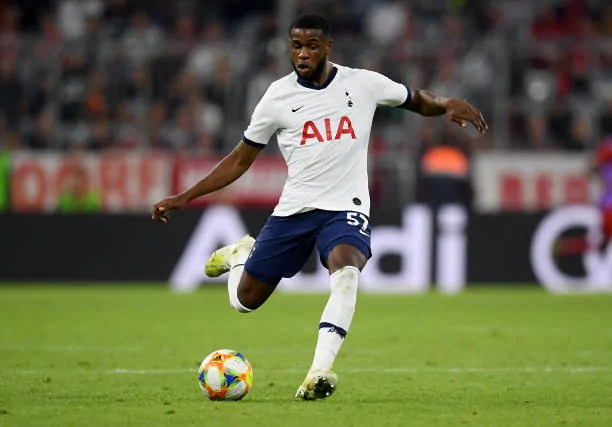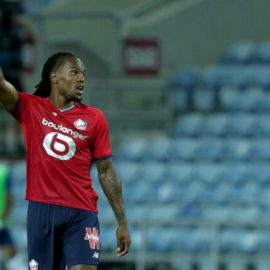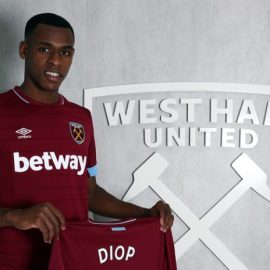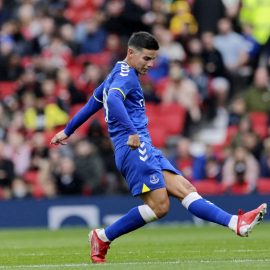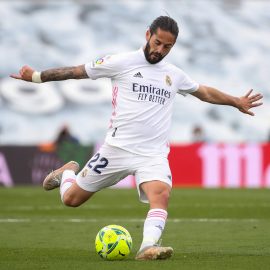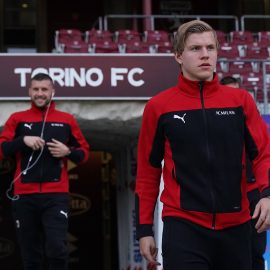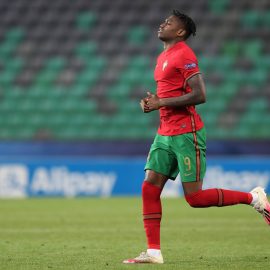Soccerlens is extremely honored to welcome one of the best defenders ever to play the game to our column: AC Milan and Italy legend Mr. Franco Baresi.
Mr. Baresi enjoyed a distinguished and enviable career at Milan, winning 6 Serie A titles and 3 European Cups. He also featured for the Italian national team in the 1990 and 1994 World Cups, taking his team to the semi-finals (3rd place) and finals respectively. He played for AC Milan throughout, and the club retired the number 6 jersey in his honor when he finally called an end to a glittering career in 1997. After retirement Mr. Baresi got involved in player coaching, and currently coaches the Milan Under-19 squad.
Fabio Capello was Mr. Franco Baresi’s manager at AC Milan and this relationship gave him special insight on Capello’s management techniques and personality. In this interview Mr. Baresi talks about Capello’s appointment as England manager and what fans and players can expect from Capello’s England.
Was Capello a better choice than Lippi? Have England got the right man?
“I do not know Lippi as well as Fabio, because he was not my manager, so I can’t answer who is a better choice as England national team manager. But Lippi is World Cup defending champion so I guess he would have been the right man, too. I do not know if Fabio is worth £6million a year, but I do know that Capello was born to win. He has always been a high-salary manager, and rightly so because he is good. If he wins the 2010 World Cup, I think the FA will be very happy to have overpaid him.”
How does Capello treat his captains?
“I was already captain before the Sacchi era and I was captain after that,when Capello arrived but nothing changed too much for me. I think Fabio has been involved with all his captains in the same way; with accuracy and reliability. I think these are its essential features that he has, as a man and as a manager. He treats his captains with respect.”
Is he the boss or does he involve senior players a lot in discussions?
“Fabio is the manager so in my opinion he is ‘the boss’ and has the last word in all decisions. He carries on his shoulders the responsibility of the whole team, but he is also too smart not to listen to the advice of more experienced players or his staff members. In them he trusts a lot, beginning with his historic ‘deputy’ Italo Galbiati, who has followed Capello everywhere.
Moreover, Capello unlike other coaches – for instance Arrigo Sacchi – was also a great player who played to the highest level and this leads him to understand that if senior players give any suggestions, this only happens because they want to win. That’s all. Coming second at AC Milan – but also at Juventus or Real Madrid – was seen as deep failure by the man. He only wants to win.”
What kind of captains does he like?
“I think that, like any manager, he prefers captains who are leaders by example, not by words. They have to have a strong character and personality, have charisma and they have to be able to help their team-mates when they need help. But the ‘true’ captain is chosen by the “locker room”, not by the manager, although in national teams the captain is almost always the player who has the highest number of caps.
Capello has trained skippers such as Paolo Maldini, Francesco Totti and Alessandro Del Piero and I am sure that guys like John Terry, Steven Gerrard, Frank Lampard and, why not, David Beckham are all in the same mould and contenders to be his next captain.”
What were his training techniques like?
“Capello is a very good manager, but today, in the professional football, it is unthinkable do everything alone. He has a staff of the highest level: his assistant Italo Galbiati, has spent a lifetime career at AC Milan, the athletic trainer Massimo Neri and goalie trainer Franco Tancredi – who has won a championship in AS Roma as a player and one as goalie trainer — are superb. Tancredi was my team-mate in the Italian national team at Mexico ’86 World Cup. They are all professionals who have won trophies both in Italy and abroad.
At AC Milan, they had vanguard structures, like the MilanLab (AC Milan’s medical and fitness center in Milanello), and that was exceptional. I do not know anything about the FA’s technical centre, but I think that Capello will be equal to the task.
He is willing to learn from everyone. For example, when Arrigo [Sacchi] arrived at AC Milan, he made me study old videos of Gianluca Signorini’s (Parma’s sweeper in the Sacchi era) defensive moves. Many years later, when he was at Juventus, Capello told me that he had done the same thing with Swedish striker Zlatan Ibrahimovic: he showed him a DVD collection with a goal compilation of Marco van Basten’s career, because he needed Ibra to turn into a more concrete goalscorer in the box. He learned the lesson, didn’t he?”
Did you practice for penalty shoot outs under Capello?
“Yes we practised penalties. I believe that shoot-outs are mainly psychological affairs but if you practice a lot, you can kick them in a better way. But for instance in a final after 120 dramatic minutes of a tight game it is another thing altogether. And I, unfortunately, know that because of Pasadena ’94, in the USA World Cup final against Brazil. I took a bad penalty after the best performance of my entire career. After my mistake, I cried on worldwide TV, but I have never been ashamed. Believe me: to deal with certain situations, there is no training that can prepare a player.”
Was he obsessed with diets?
“Capello was not obsessed with diet, but at these highest levels the small details make the difference. Any detail. And here we are talking about a fundamental component in the professional life of a top professional player. Italy is a Mediterranean country and our diet – it has been scientifically shown – is among the most varied and nutritious in the world. One of the biggest difficulties that foreign players have to face when they change country is to adjust themselves to local ways and traditions. Convincing British players to change their food habits will be one of the first problems that Capello will face.”
What was Fabio Capello like to play for?
“There were some difficult cases, of course, but I prefer to keep what happened in the locker room to remain in the locker room. I do remember when Marco Simone, who was often injured, complained to the media that he was not playing enough. Simone got angry publicly saying that “Capello is a bit like God: He does not give equal opportunities to all. Fabio soon sold him to Monaco even though he was a very good striker for the team. Capello is strong.”
What kind of players does Capello love and hate?
“Capello has always like skilful players, like Dejan Savicevic, for instance. But Capello is a modern football man and needs his players to help each other and recover your team-mate’s mistakes. You must be able to defend and have flexibility on the pitch.
That’s why Savicevic (the “Genius”), as everyone called him, was deployed as an offensive midfielder on the right flank. He was all left-footed and did not agree with Capello but it worked! In Athens at the 1994 Champions League Cup final against Barcelona, Dejan was extraordinary. Another example was [Zvonimir] Boban, with whom Fabio had some problems on the pitch. ‘Zorro’, as we nicknamed him, was a typical number 10 in his years at Dinamo Zagreb, but playing in Italian football was a whole different thing. Boban was too smart not to put himself at the service of the team, so under Capello’s orders he had to ‘sacrifice’ himself and be our inside or outside midfielder.”
Do you have a story that best sums up Capello?
“More than any particular anecdote, I remember an episode that perhaps explains better one of the main differences between Capello and his predecessor Sacchi. Arrigo often said that “leaders of the team should not be Baresi and Van Basten.” Then one day, in training, Marco [van Basten] asked him: “Mister, why do you deal with me as you deal with the others? I am not like the others”. And Sacchi said to him: ‘Because you are too smart for me to deal with you in a different way’. With Capello nothing like that would ever happen. Van Basten never needed to ask him such questions.”
Interview conducted by Sport Media Solutions.
Add Sportslens to your Google News Feed!
